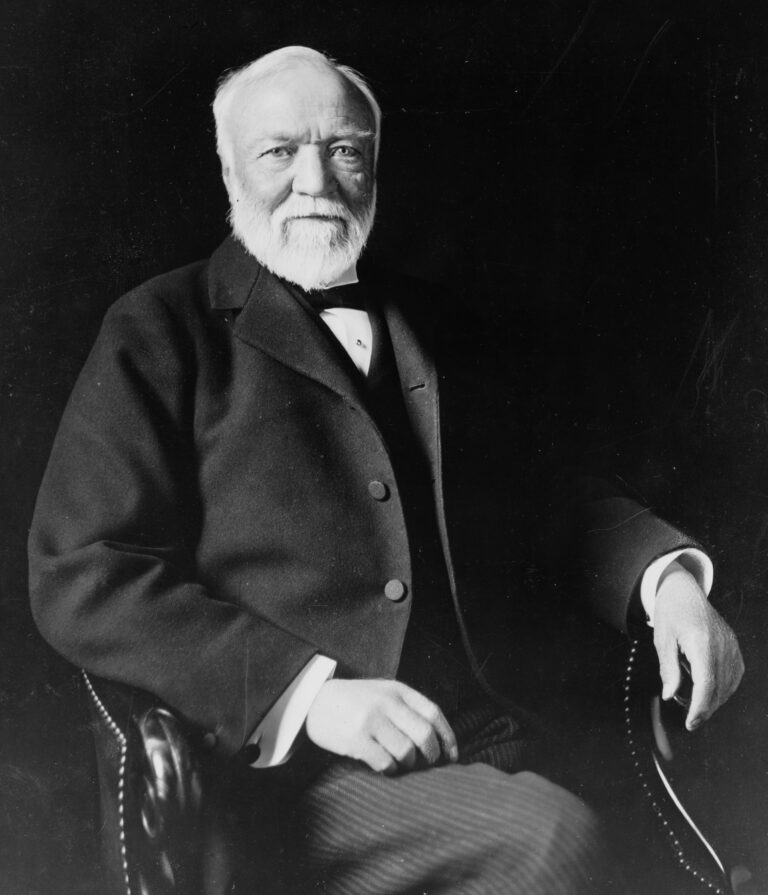Take Ownership: Investing in Yourself and Improving Your Leadership Skills
Investing in Yourself: The First Step to Becoming a Better Leader
Leadership development is a critical aspect of career growth and personal development. Whether you are a seasoned executive or a new manager, investing in yourself and continuously developing your leadership skills is essential for success. However, while it is possible to invest in yourself, do the work, and become a better leader and teammate, the reality is that you don’t have to do any of these things. It is ultimately up to you to decide how you show up and what level of effort and commitment you are willing to put into your growth and development.
In this article, we will explore the concept of ownership and how taking ownership of your leadership development can make all the difference in your success as a leader. We will examine the benefits of investing in yourself, doing the work, and becoming a better leader and teammate. We will also discuss the potential challenges and barriers that may prevent you from taking these steps and provide practical tips for taking ownership and overcoming these obstacles.
As we delve into the importance of taking ownership in leadership development, it’s essential to understand what ownership means. Ownership is the willingness to take responsibility for your actions, decisions, and outcomes. It’s about recognizing that you have control over your life and career and taking the initiative to make things happen. It means being proactive and not waiting for opportunities to come to you but creating them for yourself.
When it comes to leadership development, taking ownership means understanding that you are responsible for your growth and development. It means acknowledging that investing in yourself, doing the work, and becoming a better leader and teammate is not just a choice but a necessity for success. It means recognizing that your attitude and behavior have a significant impact on your effectiveness as a leader and that you have the power to make positive changes.
In the following sections, we will examine each of these areas in more detail, discussing the benefits and potential drawbacks of each and providing practical tips for taking ownership and overcoming challenges. By the end of this article, you will have a better understanding of why taking ownership is critical to your leadership development and how you can start taking ownership of your growth and development today.
You can invest in yourself, but you don’t have to
Investing in yourself is one of the most critical aspects of leadership development. When you invest in yourself, you are making a conscious decision to improve your skills, knowledge, and abilities. This investment can take many forms, from attending conferences and workshops to taking online courses, networking with industry professionals, or hiring a coach.
The benefits of investing in yourself as a leader are many. You gain new knowledge and skills, broaden your perspectives, and expand your professional network. You also demonstrate a commitment to your growth and development, which can lead to new opportunities and career advancement.
However, investing in yourself does come with potential drawbacks. Time, money, and effort are all required to make these investments, and not everyone has the resources or motivation to do so. It can also be challenging to determine which investments will provide the most significant return on investment and align with your career goals.
To take ownership of your leadership development in this area, start by identifying your goals and priorities. What skills do you want to develop, and what areas do you need to improve? From there, research the different options available to you and assess which ones align with your goals and budget.
Consider speaking with your employer about available training and development programs or ask for support in attending conferences or workshops. You may also want to explore online resources, such as webinars or podcasts, that are free or low-cost.
Finally, remember that investing in yourself is an ongoing process. Make it a habit to set aside time and resources for your growth and development regularly. By doing so, you will continuously improve your skills and remain competitive in your field.
Investing in yourself is a critical aspect of leadership development, and it’s up to you to decide whether or not you will make this investment. By taking ownership of your growth and development, you can make informed decisions about which investments will provide the most significant return on investment and align with your goals. Remember to prioritize your goals and set aside time and resources regularly to ensure that you continue to grow and develop as a leader.
You can do the work, but you don’t have to
Investing in yourself is only the first step towards becoming a better leader. To truly make progress, you must also be willing to do the work. Doing the work means taking action on the knowledge and skills you’ve acquired and making a conscious effort to apply them in your daily work.
The benefits of doing the work as a leader are clear. You’ll develop practical skills and gain real-world experience that will make you more effective in your role. You’ll also gain confidence in your abilities and demonstrate to others that you are committed to your growth and development.
However, doing the work also comes with potential consequences. It can be challenging to take the first step and begin implementing new practices, and it may take time to see the results of your efforts. It can also be challenging to maintain motivation and consistency in your efforts, especially when faced with obstacles or setbacks.
To take ownership of your leadership development in this area, start by setting clear goals and objectives. Identify specific actions you can take to improve your skills and make a plan for how you will implement these actions in your work. Consider seeking feedback from colleagues or a mentor to help you stay accountable and track your progress.
It’s also important to recognize that doing the work isn’t always easy. You may face resistance or obstacles along the way, and it’s important to stay motivated and committed to your goals. One way to do this is by focusing on small wins and celebrating your progress along the way. Recognize that growth and development are a journey, and every step forward is an accomplishment.
Finally, remember that doing the work is an ongoing process. Make it a habit to regularly assess your progress and adjust your goals and plans as needed. By doing so, you’ll continue to make progress towards your development as a leader.
Doing the work is a crucial aspect of leadership development. By taking ownership of your growth and development and committing to taking action on your knowledge and skills, you’ll become a more effective leader. Remember to set clear goals, seek feedback, stay motivated, and celebrate your progress along the way. By doing so, you’ll continue to make progress towards your development as a leader.
You can be a better leader and teammate, but you don’t have to
Becoming a better leader and teammate is essential for success in any professional setting. When you focus on developing your leadership and teamwork skills, you’ll be better equipped to manage projects, build relationships, and collaborate effectively with others. This, in turn, can lead to increased productivity, better outcomes, and a more positive work environment.
The benefits of becoming a better leader and teammate are numerous. By improving your communication skills, you’ll be better able to convey ideas and build relationships with colleagues. By developing your emotional intelligence, you’ll be better equipped to understand and manage your own emotions and those of others. By improving your conflict resolution skills, you’ll be better able to navigate challenging situations and resolve disputes effectively.
However, becoming a better leader and teammate also comes with potential challenges. It can be challenging to break old habits and develop new ones, and you may face resistance or pushback from others as you make changes. It’s also possible that you may encounter conflicts or misunderstandings as you work to improve your relationships with others.
To take ownership of your leadership development in this area, start by identifying your strengths and weaknesses as a leader and teammate. Consider seeking feedback from colleagues or a mentor to help you gain a better understanding of how others perceive you. From there, identify specific areas where you want to improve and make a plan for how you will develop these skills.
One effective way to become a better leader and teammate is by seeking out feedback and constructive criticism from others. Make it a habit to ask for feedback on your performance regularly and be open to hearing both positive and negative feedback. Use this feedback to identify areas where you can improve and develop a plan for how you will work on these areas.
It’s also important to recognize that becoming a better leader and teammate is an ongoing process. Focus on developing habits and routines that will help you continually improve, such as regularly checking in with colleagues or seeking out opportunities to practice your skills. Remember that growth and development take time and effort, and it’s important to stay committed and consistent in your efforts.
Becoming a better leader and teammate is a critical aspect of leadership development, and it’s up to you to decide whether or not you will make this investment. By taking ownership of your growth and development and committing to improving your leadership and teamwork skills, you’ll be better equipped to navigate challenges and achieve success in your professional endeavors. Remember to seek out feedback, focus on habits and routines, and stay committed and consistent in your efforts. By doing so, you’ll continue to make progress towards your development as a leader.
How you show up is a choice
One of the most critical aspects of leadership development is how you show up in your role. Your attitude, behavior, and overall approach can have a significant impact on your effectiveness as a leader and your ability to build positive relationships with others.
It’s essential to recognize that how you show up is a choice. You have control over your thoughts, feelings, and actions, and it’s up to you to decide how you will approach your work and your interactions with others.
When you approach your work with a positive attitude and a growth mindset, you’ll be better equipped to navigate challenges and make progress towards your goals. When you approach your interactions with others with empathy, respect, and a willingness to listen and learn, you’ll build stronger relationships and create a more positive work environment.
However, how you show up also comes with potential consequences. When you approach your work with a negative attitude or closed mindset, you may miss out on opportunities for growth and development. When you approach your interactions with others with a lack of empathy or respect, you may damage relationships and create a negative work environment.
To take ownership of how you show up, start by practicing self-awareness. Take time to reflect on your thoughts, feelings, and actions and how they are impacting your work and your relationships with others. Consider seeking feedback from colleagues or a mentor to gain a better understanding of how others perceive you.
From there, make a conscious effort to adopt a positive attitude and growth mindset. Focus on learning from mistakes, seeking out opportunities for growth and development, and approaching challenges with a solution-focused mindset.
When it comes to your interactions with others, focus on building empathy, respect, and a willingness to listen and learn. Practice active listening, seek out diverse perspectives, and take steps to build positive relationships with your colleagues.
Finally, remember that how you show up is an ongoing process. Make it a habit to regularly assess your attitudes, behaviors, and approach and make adjustments as needed. By doing so, you’ll be better equipped to navigate challenges, build positive relationships, and achieve success as a leader.
How you show up is a critical aspect of leadership development, and it’s up to you to decide how you will approach your work and your interactions with others. By taking ownership of how you show up and adopting a positive attitude and growth mindset, you’ll be better equipped to navigate challenges and build positive relationships with others. Remember to practice self-awareness, focus on empathy and respect, and continually assess and adjust your approach. By doing so, you’ll continue to make progress towards your development as a leader.
Take ownership
Taking ownership is the key to success in leadership development. When you take ownership of your growth and development, you are taking control of your career and your life. You are demonstrating a commitment to learning, growth, and excellence, and you are setting yourself up for success.
Taking ownership involves a range of behaviors and attitudes, including accountability, responsibility, and initiative. When you take ownership, you accept responsibility for your actions and outcomes and take proactive steps to achieve your goals. You don’t wait for opportunities to come to you; instead, you create them for yourself.
To take ownership of your leadership development, start by setting clear goals and objectives. Identify specific areas where you want to improve and make a plan for how you will achieve these goals. Consider seeking out a mentor or coach to help you stay accountable and provide guidance as you work towards your goals.
It’s also important to hold yourself accountable for your actions and outcomes. When things don’t go as planned, avoid making excuses or blaming others. Instead, take responsibility for your actions and look for opportunities to learn and grow from the experience.
Another important aspect of taking ownership is seeking out feedback and constructive criticism. Ask for feedback from colleagues, mentors, or coaches to gain a better understanding of how others perceive you and identify areas where you can improve.
Finally, take initiative in your growth and development. Don’t wait for others to tell you what to do; instead, seek out opportunities to learn and grow on your own. Attend conferences and workshops, read books and articles, and seek out experiences that will help you develop your skills and knowledge.
Taking ownership is critical to success in leadership development. By accepting responsibility for your actions and outcomes, setting clear goals and objectives, seeking out feedback and constructive criticism, and taking initiative in your growth and development, you’ll be better equipped to achieve your goals and become an effective leader. Remember to hold yourself accountable, seek out guidance and support, and take proactive steps to achieve your goals. By doing so, you’ll continue to make progress towards your development as a leader.
Overcoming Challenges
While taking ownership of your leadership development is critical, it’s not always easy. There may be challenges and obstacles that arise along the way that can make it difficult to stay committed and make progress towards your goals. However, with the right mindset and strategies, it’s possible to overcome these challenges and continue to grow and develop as a leader.
One of the biggest challenges in taking ownership of your leadership development is finding the time and resources to invest in yourself. It’s easy to get caught up in the day-to-day demands of your job and neglect your growth and development. However, it’s essential to prioritize your development and make it a non-negotiable part of your routine.
To overcome this challenge, start by setting aside dedicated time for your growth and development. Make it a habit to read books or articles, attend workshops or conferences, or participate in online courses regularly. Consider seeking out support from your employer, such as training and development programs, to help you invest in yourself.
Another challenge in taking ownership is maintaining motivation and staying committed to your goals. It’s easy to get discouraged or distracted, especially when faced with setbacks or obstacles. However, by focusing on your why and staying connected to your goals, you can maintain motivation and stay committed to your growth and development.
To overcome this challenge, start by identifying your why – why is your development important to you, and what do you hope to achieve? Use this why to stay connected to your goals and keep yourself motivated. Consider finding an accountability partner, such as a colleague or mentor, who can help you stay committed to your goals and provide support when you need it.
Finally, another challenge in taking ownership is overcoming self-doubt and imposter syndrome. It’s common to feel like you’re not qualified or capable of achieving your goals, especially when you’re pushing yourself outside of your comfort zone. However, by recognizing these feelings and reframing your mindset, you can overcome self-doubt and imposter syndrome.
To overcome this challenge, start by reframing your mindset. Instead of focusing on your shortcomings or failures, focus on your strengths and successes. Celebrate your accomplishments and use them as evidence that you are capable of achieving your goals. Consider seeking out support from a coach or therapist who can help you overcome self-doubt and imposter syndrome.
Taking ownership of your leadership development is not always easy, but it’s essential for success as a leader. By overcoming challenges such as finding the time and resources to invest in yourself, maintaining motivation, and overcoming self-doubt and imposter syndrome, you can continue to grow and develop as a leader. Remember to prioritize your development, stay connected to your goals, and seek out support and guidance when needed. By doing so, you’ll continue to make progress towards your development as a leader.
The Choice is Yours: Take Ownership of Your Leadership Development
In conclusion, leadership development is an ongoing process that requires a commitment to growth, learning, and self-improvement. By taking ownership of your development as a leader, you can set yourself up for success and become an effective leader and teammate.
Throughout this article, we’ve explored different aspects of leadership development, including investing in yourself, doing the work, becoming a better leader and teammate, and how you show up. We’ve also discussed the importance of taking ownership of your growth and development and strategies for overcoming challenges that may arise along the way.
Remember that leadership development is not a one-time event, but an ongoing journey. It requires a willingness to learn, adapt, and evolve over time. By taking ownership of your development and committing to growth and improvement, you can become a more effective leader and make a positive impact in your professional and personal life.
As you continue on your leadership development journey, remember to stay focused on your goals, seek out feedback and support, and be open to learning and growth opportunities. By doing so, you’ll be better equipped to navigate challenges, build positive relationships, and achieve success as a leader.
In the end, it’s up to you to decide how you will approach your leadership development. You can choose to invest in yourself, do the work, become a better leader and teammate, and show up with a positive attitude and growth mindset. You can choose to take ownership of your development and commit to growth and improvement. The choice is yours, and the opportunities for growth and development are endless.






